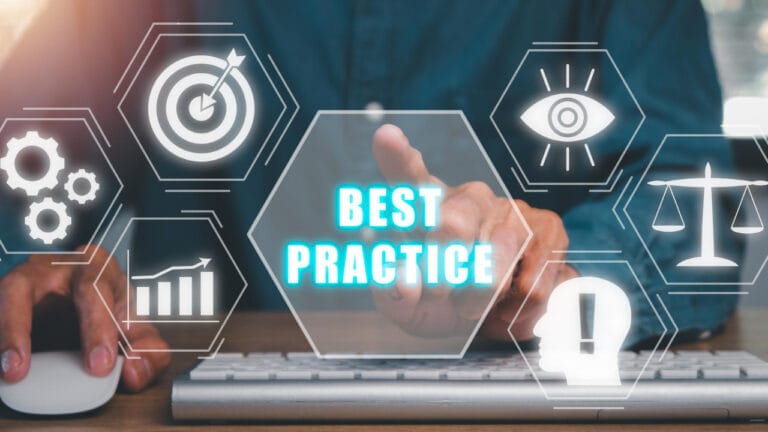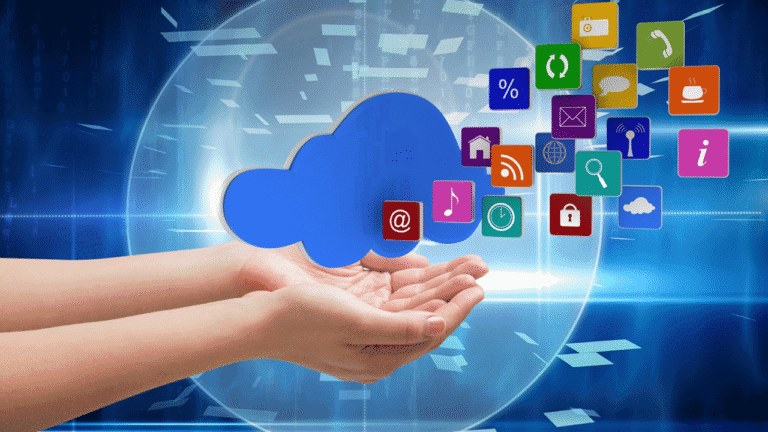In a world driven by rapid technological advancements, staying ahead in education and training has never been more crucial. Whether you’re managing corporate training or academic courses, a Learning Management System (LMS) offers the tools you need to streamline learning processes effectively. It’s no longer just about storing course content; modern LMS platforms provide powerful features to analyse performance, identify skill gaps and personalise learning experiences.
An LMS acts as a central hub for organising and delivering training materials while tracking progress with precision. From interactive modules to detailed performance reports, it ensures that learners stay engaged and trainers maintain full transparency over outcomes. With its ability to enhance productivity and foster growth, an LMS has become indispensable across industries ranging from education to retail.
By adopting an LMS, you can transform how learning is managed—making it efficient, scalable and impactful for both individuals and organisations alike.
Key Features of Top Learning Management Systems in India
Today, LMSs in India are crafted to accommodate the varied training demands of the country’s huge population of learners. These platforms now include features that are meant to ensure enhanced engagement and accessibility, including gamification, multilingual content, and more. What are the modern LMS features that you should be looking for? Here’s a detailed list of the modern LMS features that you should be looking for.
1. User-Friendly Interface
A streamlined and intuitive interface is essential for enabling users to navigate the LMS with ease. This feature significantly minimizes the learning curve while promoting increased user engagement. Notably, top LMS platforms are acknowledged for their user-friendly design, catering to individuals across different levels of technical expertise.
2. Mobile Accessibility
Mobile LMS offers a flexible approach to employee training. Key benefits include bite-sized modules that deliver concise, focused content, enhancing retention and engagement. Push notifications serve as timely training reminders, keeping learners on track. Offline access ensures uninterrupted learning, even without internet connectivity, crucial for users in remote areas. This combination of features makes mobile LMS a powerful tool for continuous, on-the-go learning.
3. Multi-Language Support
India’s linguistic diversity necessitates LMSs that support multiple languages. Top LMSs like Bytecasting provides multilingual support, enabling learners from various regions to access content in their preferred languages, such as Hindi, Tamil, Bengali, and Marathi. This feature ensures inclusivity and enhances the learning experience for India’s diverse population.
4. Integration Capabilities
Seamless integration with existing tools like HR systems, CRMs, and others enhances the LMS’s utility. These integrations facilitate smooth data flow, including automatic user enrollment and progress tracking, thereby enhancing administrative efficiency and centralizing reporting.
5. Advanced Reporting and Analytics
Data-driven insights are vital for assessing training effectiveness. LMSs like Bytecasting provide detailed reporting features, enabling organizations to track learner progress and make informed decisions.
6. Gamification Features
Incorporating game-like elements, including badges, leaderboards, and points, has been shown to enhance learner engagement significantly. Bytecasting LMS integrates effective gamification features that promote a more interactive and enjoyable learning experience.
7. Customization and Branding
The ability to customize the LMS to reflect an organization‘s branding enhances brand consistency. Bytecasting offers customization options, allowing companies to tailor the platform’s appearance and functionality to their needs.
8. Compliance and Certification Management
For industries with regulatory requirements, LMSs should facilitate compliance training and certification tracking. Top LMSs support certification management, ensuring that organizations can monitor and document compliance effectively.
9. Scalability
As organizations grow, their LMS should scale accordingly. Bytecasting LMS is designed to accommodate businesses of all sizes, from startups to large enterprises, ensuring long-term usability.
10. Cost-Effectiveness
Budget considerations are crucial, especially for small and medium-sized enterprises. Bytecasting platform offers flexible pricing models, making it an affordable option without compromising on features.

How To Choose The Right Learning Management System in India
Selecting the right Learning Management System (LMS) ensures effective learning delivery and organisational growth. Focus on aligning your needs, goals, and resources with the features offered by potential platforms.
Assess Your Organisational Needs
Define your organisation’s training objectives before evaluating LMS options. For instance, determine whether you aim to upskill employees, onboard new hires, or ensure compliance with regulations. Identify your target audience and their preferences for learning formats—such as video tutorials or quizzes—and access methods like remote or mobile learning. Ensure the LMS supports these objectives while enhancing user experience through intuitive interfaces that minimise the learning curve.
Evaluate Features And Integrations
Scrutinise platform capabilities to match specific requirements. Look for essential features like course management tools, progress tracking, certification issuance, gamification elements, and analytics dashboards to monitor performance effectively. Verify integration compatibility with existing tools in your tech stack such as HR software or video conferencing applications to streamline workflows seamlessly.
Budget And Cost Considerations
Analyse pricing models of prospective LMS platforms based on their type and deployment method. Cloud-based systems often have subscription fees starting from a few hundred pounds monthly depending on usage levels whereas self-hosted solutions may require upfront investments averaging £25,000 including setup costs and support services. Factor in long-term expenses related to maintenance, upgrades, and scalability when comparing options.
Implementation And Support Options
Review vendor-provided implementation timelines and available support services such as training sessions for administrators or user guides for learners during onboarding phases. Check if additional assistance—like 24/7 technical help—is included or incurs extra charges. Opt for vendors offering robust post-implementation support to address technical issues swiftly while ensuring minimal disruption during day-to-day operations.
Challenges Of Implementing An LMS
Implementing a Learning Management System (LMS) involves various obstacles that organisations must address to ensure successful adoption. These challenges can impact user engagement, system functionality, and overall effectiveness.
Adoption Resistance
Resistance to change is common among employees or learners unfamiliar with new technologies. If users lack confidence in navigating the platform, adoption rates may remain low. Proper onboarding programs and intuitive interfaces can mitigate these issues by building user trust and reducing complexity during initial interactions with the LMS.
Customisation Limitations
While many LMS platforms offer customisable features, they often fall short when addressing unique organisational needs. Limited flexibility may hinder your ability to align the system with specific workflows or branding requirements. This constraint becomes particularly challenging for industries requiring specialised training modules or compliance-related content.
Cost Of Deployment
The financial investment required for implementing an LMS includes more than just software acquisition. Expenses such as infrastructure setup, staff training, content development, and ongoing maintenance contribute significantly to deployment costs. For smaller organisations, these expenses can strain budgets if resources aren’t allocated strategically based on priorities like scalability and long-term usability.
Trends In Learning Management Systems
The LMS landscape continues to evolve, integrating advanced technologies and innovative approaches to enhance learning experiences. Staying informed about these trends helps you adapt training strategies and improve learner engagement.
AI And Personalisation
Artificial intelligence is transforming LMS by enabling personalised learning experiences. AI algorithms analyse learner data, such as course preferences, learning behaviour patterns, and skill gaps, to recommend tailored content. This adaptive approach ensures that each user receives relevant resources aligned with their goals or roles. For example, an employee seeking leadership development might be directed to modules focused on management skills and decision-making scenarios. Personalised paths increase engagement while improving knowledge retention.
Gamification And Social Learning
Gamification features like points, badges, leaderboards, and rewards create a more engaging environment by introducing competition into training programs. These elements encourage learners to complete courses while boosting motivation and participation rates. Social learning tools further enhance interaction by facilitating discussion boards and forums within the LMS platform to share insights or resolve queries collectively in real time.
Final Word
Choosing the right Learning Management System in India can be a game-changer for your organisation‘s training and development efforts. By leveraging its advanced features, you can streamline course delivery, enhance learner engagement, and achieve measurable outcomes that align with your goals.
As technology continues to evolve, staying ahead with an LMS that supports modern learning trends ensures you are prepared to meet the dynamic needs of learners. Whether you are focused on scalability, flexibility, or personalisation, investing in the right platform will empower you to create impactful learning experiences while driving growth and efficiency.


